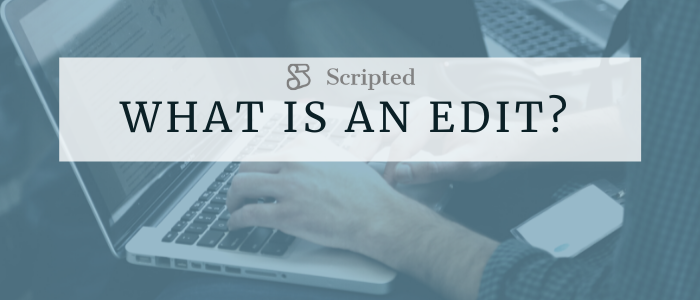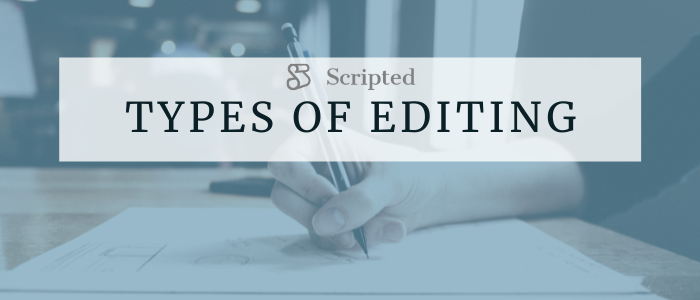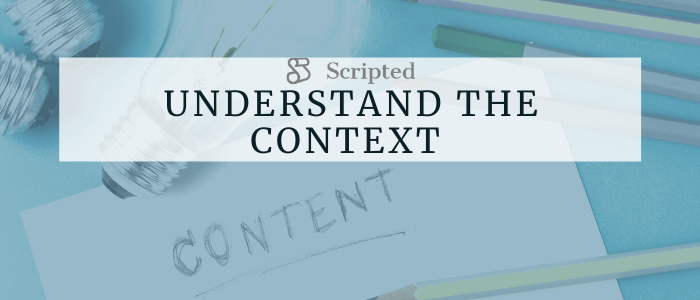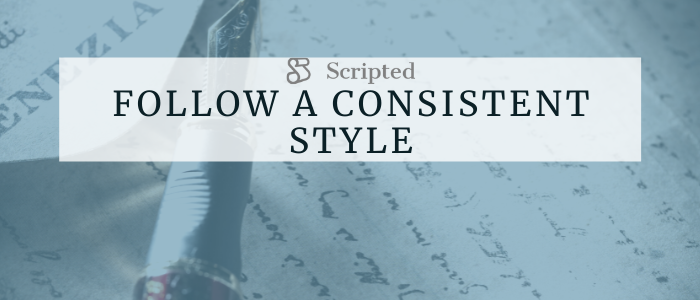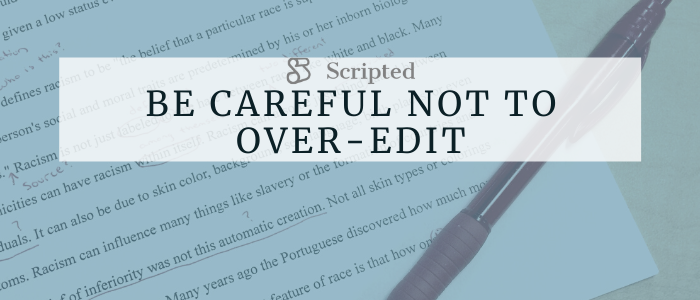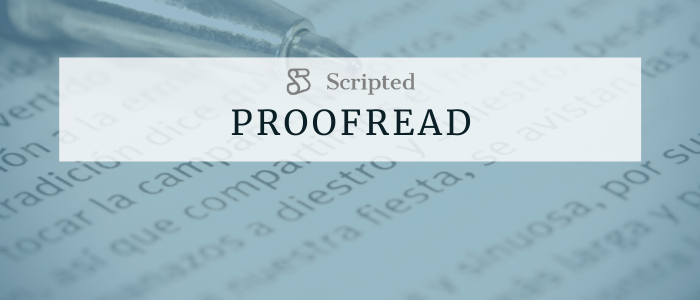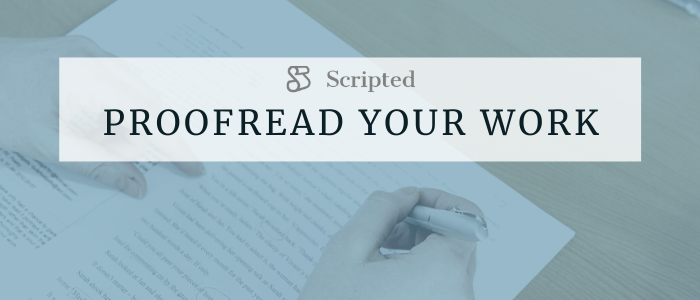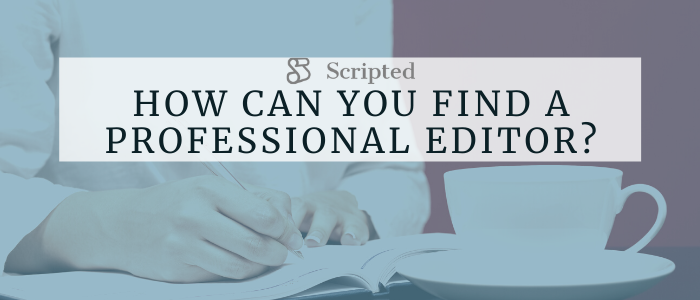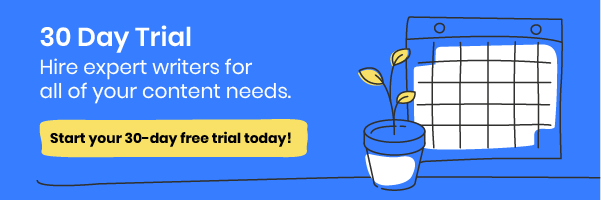- Blog Home
- Ciara Antolini
- How To Effectively Perform Edits
How to Effectively Perform Edits

Every writer needs a good editor. The content you produce is not perfect the first time around, and it is essential to consider your audience when performing edits. This article will provide some tips for how to effectively perform edits on your text to make it more readable and understandable for others and improve its quality overall by addressing both language and structure problems.
What is an edit?
An edit is a process of revising content to improve its quality.
Generally speaking, editors have two main goals when performing an edit:
- Make your edited document more readable/understandable, so it's easier to read by others.
- Improving the overall quality of the document by correcting mistakes in grammar and sentence structure and maintaining consistency throughout the work.
Read more: The Difference Between Copy Editing and Content Editing
Types of editing
- Copyediting - Checking grammar, punctuation, sentence structure, and word usage
- Developmental Editing - Looking at the content in a manuscript to see what needs changing (rewrites or expansions)
- Substantive Editing - Rewriting sections of text by providing new evidence
- Proofreading - Ensuring there are no mistakes with spelling or incorrect words used throughout the document
Read more: Here are the 6 Types of Copy Editing
Tips for when you're stuck on a sentence or paragraph
- Try rewording the sentence and see if you can find a more concise way to say what you want.
- Consider how others will understand your words. Try to make them easy for anyone reading it to understand.
- The reader mustn't get lost in reading or have any confusion about what they just read, so check for these things when editing to help ensure this doesn't happen. Also, make sure there's no repetition throughout the document.
- Look at other similar sentences and compare them with yours because sometimes we don't notice our own mistakes when comparing something else which has an error with ours.
Read more: Copyediting: Best Practices
Understand the context of the edit
It is essential to understand the context of your edit: are you editing a document for work or personal use, and who will be reading it? Editing styles will vary depending on your audience and the type of document you are editing. For example, suppose you're working in an academic environment with a very formal style guide that requires specific formatting for citations and references (and these need to be consistent throughout). In that case, it is essential to edit accordingly.
Follow a consistent style throughout your edits
If you're editing a publication for work, following the style guide that your employer has set out is essential. For example, suppose they require all of their content released on social media to be written in the first person (I) and include title case when referencing people or organizations. In that case, this needs to happen throughout the document.
The same goes for inconsistencies between numbers and bullet points: ensure these are consistent within one edit, so there isn't confusion with readers who have to go back and forth from page to page due to different formatting styles.
Be careful not to over-edit or change meaning in any way
You should be careful not to over-edit or change the meaning of any sentence in your document. Editing is for correcting mistakes, so if you're changing something that isn't a mistake, this creates confusion and can lead readers astray from what they were reading. Over editing can completely change the meaning of a sentence, so be careful to read through everything and make sure that any edits you're making are for correcting mistakes. For example: "I love my dog" should not become "My dog is the best!" when editing because it completely changes what was originally said.
Check that everything makes sense in the context of the whole text
It may be difficult to notice that something's wrong with your document if you only read through it in small sections or by skipping around. Make sure the whole text makes sense when reading from start to finish, then go back and edit what needs to be changed. Be careful not to misuse words - this will decrease the clarity of meaning quickly as readers have trouble following along with your message. For example: "I enjoy deep-sea fishing" is correct, but "deep-sea fishery" isn't - even though it includes almost all the same words. Some people might read this wrong and think you are talking about a boat or company instead of what you wanted to say. You do not want to miss out on any potential readers! So make sure your language usage is clear as possible for everyone else reading.
Proofread
Good editing requires consistent attention to detail, so you must also proofread for grammar and punctuation mistakes. It can be easy to miss a mistake in the midst of reading through your document - but if there are many small things wrong or sentences don't make sense, then it is best to go back and fix them immediately rather than later on after they've had more time to accumulate.
Proofread your work by asking someone else to read it aloud
One of the best writing tips is to ask a friend or family member to read your work and see how they interpret your message; this will give you an idea of whether something needs clarification. An excellent way to check on your clarity would be by reading the document aloud: this helps you catchwords that you might have left out or paused in places where there shouldn't be any.
You need to take into consideration the following when proofreading and editing:
Grammar
- Make sure every sentence has a subject and verb.
- Be careful with apostrophes - use them in contractions like "don't" but not for possessive words.
Read more: 6 Grammar Lessons From Weird Al
Punctuation
- When adding punctuation, remember to use commas after quotes or an explanation inside parentheses.
- Colons go outside quotation marks, and semicolons have periods placed on either side of them.
Spelling
- Always double-check your spelling for words that are tricky or have different meanings. You might think you know what a word is but misspell it and create confusion in an otherwise clear sentence.
- If the document has been proofread before, check to see if there were any mistakes found. If not, go through once more to make sure nothing was missed.
Word Usage
Be careful with your word choice so that it doesn't become repetitive. You might use the exact words repeatedly without noticing - this can quickly lead to a lackluster document. Finding synonyms is an excellent way of ensuring all language usage stays fresh and exciting for readers, as well as keeping you from repeating yourself too often.
Sentences need to make sense together. Make sure that all sentences flow into one another smoothly.
Capitalization
If you're unsure where to capitalize or what should be capitalized, remember this: Proper nouns are usually capitalized.
So if "I enjoy deep-sea fishing" is a proper name for something - then it would make sense to capitalize the 'deep sea' part.
Use capitalization in the following cases:
- Proper nouns like names of people, places, and organizations
- Titles for books or movies
- All words that are the first word in a sentence (this includes conjunctions)
If there is something you're not sure about, always double-check with your style guide!
Formatting
Formatting should be consistent throughout your document. This includes how you indent for a new paragraph or use italics to emphasize certain words in the text. If there's no formatting guide, it is best not to add any until after you have completed the document and are ready to edit. Formatting can distract readers from what they're reading if it doesn't fit with their expectations, so make sure that all styling follows one set of guidelines rather than being too creative when putting together a draft.
How can you find a professional editor?
It can be a challenge to find the right editor for you, but it doesn't have to be!
Search on social media sites like LinkedIn as well as freelancers directories. You'll also want to read any reviews online before deciding whether to work with them. Ask friends and colleagues too. Good editors usually come highly recommended, so word of mouth is a great place to start when searching around.
If you are looking for professional editing services, using a platform like Scripted will connect you with some of the best editors and writers in your industry. Visit our product page to connect with editors.
